Keith Miller's Blog, page 10
January 15, 2011
Walton Ford
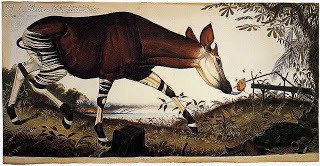
Bula Matari

Chungado
Over at Biblioklept (a marvelous site), I discovered the work of Walton Ford. Extraordinary stuff!
January 9, 2011
Writers and Driving

Martin Amis, in The Information, wrote: "Poets don't drive. Never trust a poet who can drive. Never trust a poet at the wheel. If he can drive, distrust the poems . . ." When I first read that, I thought it was just Amis being hyperbolically amusing. But I recently discovered (on her marvelous new blog) that Ursula Le Guin doesn't drive. Now, I also don't drive, and neither does my wife. Part of my aversion to cars arises from a conscious decision to use less of the world's resources, but there is also an innate dislike of the car as object. I love traveling by bicycle and train, but zipping around in a stinky little metal box is yucky. I knew that Nabokov never learned to drive, though he sometimes wrote in the car (that's him up there, with his index cards). His wife Vera drove him on his butterfly-catching expeditions. And Ray Bradbury has famously never learned to drive. Of course, there are also wonderful writers who celebrated driving – On the Road and the opening scene of All the King's Men come to mind – but perhaps there is something behind Amis's comment. It would be fun to compile a list of writers who don't drive, and then see to what extent one can trust their poems.
December 12, 2010
Cavell, Companionship, and Christian Theology
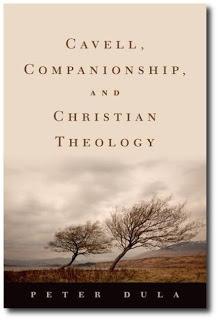
My friend Peter Dula's book Cavell, Companionship, and Christian Theology has just been published by Oxford. Pete, who teaches religion at Eastern Mennonite University, is one of the smartest and best-read people I've met. His reading seems to have no borders: he is versed in philosophy, theology, poetry, and fiction, as well as environmental and bicycling texts. He's one of the few people I know who can put Tolkien, Tolstoy, and Wittgenstein into the same sentence.
I got to know Pete while serving as a peace worker with Mennonite Central Committee in Burundi. He later went to Iraq, as MCC's peace worker there (taking over from my brother, incidentally). He subsequently published a number of articles in various Christian periodicals. One, "The War in Iraq: How Catholic Conservatives Got It Wrong," refuted claims that the Iraq war was just, and generated a heated online debate.
Pete was drawn to Stanley Cavell, who is regarded as something of an oddball in philosophical circles, partly by his interest in literature: Cavell has a deep reverence for Shakespeare, Austen, and Emerson, among other writers. Cavell, Companionship, and Christian Theology is the first text to bring Cavell's ideas into the realm of theology. Pete's book is deeply literary, discussing, among other writers, W. G. Sebald (and I believe I was the first person to suggest Pete read Sebald – after reading about him in a James Wood volume Pete had sent me!) and Nabokov (Speak, Memory), and poets from Auden to Coleridge to Heaney. The book is scintillatingly well-written, in an accessible style that manages to be both conversational and densely literary. My favorite line: "The good critic is the one most adept at giving reasons for Tolstoy's superiority over Dostoevsky." I suggest you buy the book.
October 31, 2010
The Quest for Readable Sci-fi
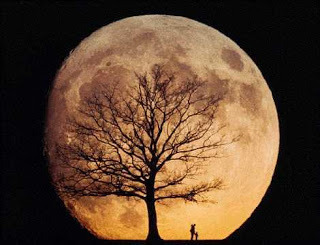
I recently had a hankering for some sci-fi. Hadn't read any for a while, so I thought I'd try Snow Crash, which everyone seemed to like. I got about ten pages into it, threw it away, then went back to it a week later. Got about a quarter of the way through it, and realized I was having a very bad time. I hated the chatty, colloquial tone, the "humorous" references to the present. I couldn't stand a protagonist named Hiro Protagonist, who was a high-tech pizza-delivery boy. So I went on Goodreads, and found a list of best sci-fi. Going through the list, I was surprised to see how many of the books I'd read, and how many I'd given two or three stars. Now, I'm generally a five-star kinda guy, so it got me thinking: why is so much sci-fi so bad, and what do I want out of it?
I remember picking up Dune when I was about ten, at the house of my parents' friends, and being unable to put it down. It seemed so grown-up, so densely created. The names (Muad'Dib, Bene Gesserit, Leto Atreides) seemed so organic; so right. It was the sci-fi equivalent of The Lord of the Rings. I read Dune over and over in my teens, before discovering Tolstoy and Hemingway. Sometime in my early thirties I went back and tried to read it again. But this time I saw through the tricks – I saw how Herbert had used Islamic history and Arabic to create his plot and names. The writing was at times dreadful ("Did Hawat talk to you about Salusa Secundus?" "The Emperor's prison planet? No . . ."), and the characters seemed thinner than I remembered. Nevertheless, I can still taste the initial transport that Dune provided, and that I found in certain other novels – notably Nova by Samuel Delany and The Chrysalids by John Wyndham.
Recently, writers such as Catherynne M. Valente, Jeff VanderMeer, and Kelly Link have been doing new and interesting stuff with "fantasy." So I got to thinking about what a satisfying sci-fi novel would look like in my present post-Tolstoy/Nabokov/Borges state. The only sci-fi novels that I can currently read are William Gibson's Neuromancer (and in particular the first fifty pages or so, with that densely worked prose and unelaborated, compacted novelty) and Le Guin's The Dispossessed and The Left Hand of Darkness. Doris Lessing's Shikasta was good, but the "Rachel Sherban's Diary" sections, which can hardly be termed sci-fi, were by far the best parts. Dhalgren has the language and texture I crave, but is too exasperatingly diffuse. Nothing I've found gives me an emotion similar to my initial reading of Dune. I want vast scope, the notion of distant worlds and spaceships spinning among the stars, poetry, ideas . . . and I also want characters as solid as Levin and Maggie Tulliver. Is this asking too much? Are there novels out there I'm missing? Any suggestions?
September 1, 2010
The Book on Fire on Fast Forward TV

The Book on Fire has been nicely reviewed by Fast Forward, the television show devoted to speculative fiction:
"Balthazar is a thief of books, some to maintain his lifestyle, but some his heart seeks; "beautiful books: intricately textured, with music to break your heart, a typeface to sink your teeth into, a story that grips your throat." In pursuit of this goal, he goes to Alexandria, which is not the city we know, but one where the lighthouse still exists and the Library is a secret place o...
July 14, 2010
Palimpsest
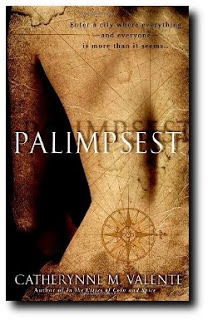
Palimpsest is not for everyone. It's voluptuous, purple, and imaginative to the point of vertigo. Its logic is that of dreams or surrealism. It moves slowly, and for long stretches leaves the reader floundering. Advocates of realist, Iowa School, write-what-you-know novels will despise it.
But for those who love night trains and beekeepers, locksmiths and tattoos; for those who love the words palanquin and persimmon and bibliomancy, this is the book you've been waiting for. You might want to p...
July 2, 2010
Arabic Words in English

For a while, I've been collecting words that entered English via Arabic. I've pulled out some of the more interesting words here. Check out the etymologies are those for adobe, apricot, assassin, cave (and alcove), chess (and checkmate), drub, and garble. Many nouns brought along with them the Arabic definite article al-, and in some cases (alcove, cave; alchemy, chemistry) English adopted the word twice; once with the article and once without.
admiral - amr al-bihar, commander of the seas
ado...
June 18, 2010
Review of The Book on Fire

Nice review of The Book on Fire from Ian Watson, celebrated British sci-fi author of The Embedding, and screenwriter for A.I.: Artificial Intelligence.
What a gorgeous, sensual, and eloquent, though also economical, style! Such imagery. So many perfect sentences and observations. "Her laughter, like a crow fried on a tram wire …" "Coffee foxed with nutmeg …" If only Flaubert (who wanted to write a book sustained by the force of style alone) and Baudelaire could have read The Book on Fire....
June 12, 2010
Writers on Henry James
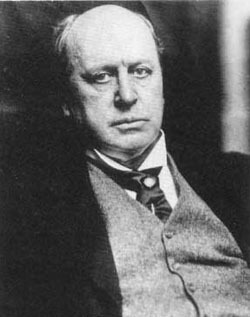
Lawrence Durrell: "Would you rather read Henry James or be crushed to death by a great weight?"
Oscar Wilde: "Mr. Henry James writes fiction as if it were a painful duty."
E. M. Forster: "So enormous is the sacrifice that many readers cannot get interested in James, although they can follow what he says (his difficulty has been much exaggerated), and can appreciate his effects. They cannot grant his premise, which is that most of human life has to disappear before he can do us a novel."
Ar...
May 22, 2010
The Box of Delights
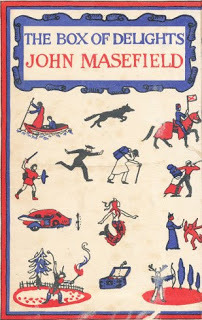
John Masefield, poet laureate of the U.K. from 1930 till his death in 1967, is perhaps best known for his poem "Sea Fever" ("I must go down to the seas again, to the lonely sea and the sky"). He was also, however, one of the finest and most influential writers of children's books. I first read The Box of Delights in Kenya, when I was about ten. When I went to the States for college, I was horrified to find that no one had heard of it, and that the only available edition had been butchered by ...



